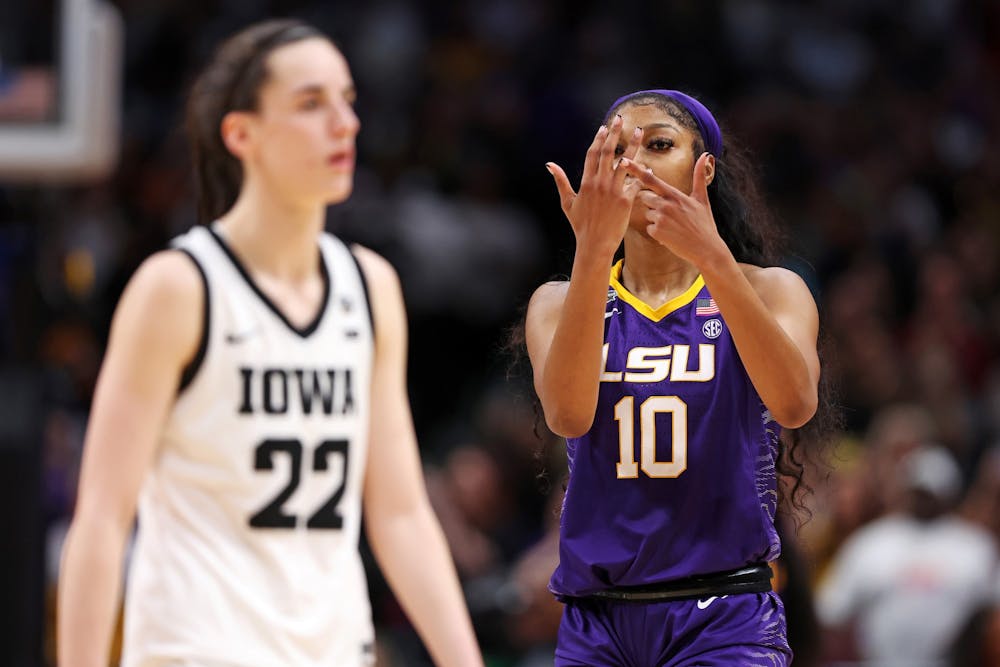After a record-breaking season, the Louisiana State University Tigers were hailed as the winners of the 2023 NCAA Women’s Basketball Championship. In the final game against the Iowa Hawkeyes, LSU won its first national title — beating Iowa 102 points to 85.
At the top of your news feeds should be highlights of the game, the most valuable players and celebratory remarks. Instead, most of the joy behind LSU’s historic win is being overshadowed by Twitter dragging LSU forward Angel Reese.
Voted the Most Outstanding Player of the Final Four Tournament for her domination on the court, Reese is being called out for “cockiness” and “poor sportsmanship” near the end of the championship game. Reese was seen waving her hand in her face and pointing to her ring finger — symbolizing that LSU would be winning the championship ring. Reese looked directly at Iowa’s Caitlin Clark, who used the John Cena-like taunt and others throughout the season.
In an ESPN video interviewing some of the Iowa players, Clark is praised as the “queen of comebacks” and her taunts are taken as lighthearted ways to keep her team fired up.
“I loved that she did the John Cena thing," Iowa guard McKenna Warnock said, "I think it was so cool.”
She referenced the March Madness Elite Eight game against Louisville, in which Clark waved her hand in her face, implying that she can’t be stopped — a taunt reminiscent of Cena’s famous “You can’t see me” move.
Another teammate, Iowa forward Hannah Stuelke, said “I love when she just hypes up the crowd and then everyone just goes wild, it’s awesome every time.”
If these provokes weren’t seen as “classless” when Clark did it, why switch up now?
Reese’s actions were not “classless,” as Twitter users complained. In fact, her scrutinized actions do not boil down to a simple debate between good and bad sportsmanship. The problem is that a Black woman dared to taunt a white woman right back.




